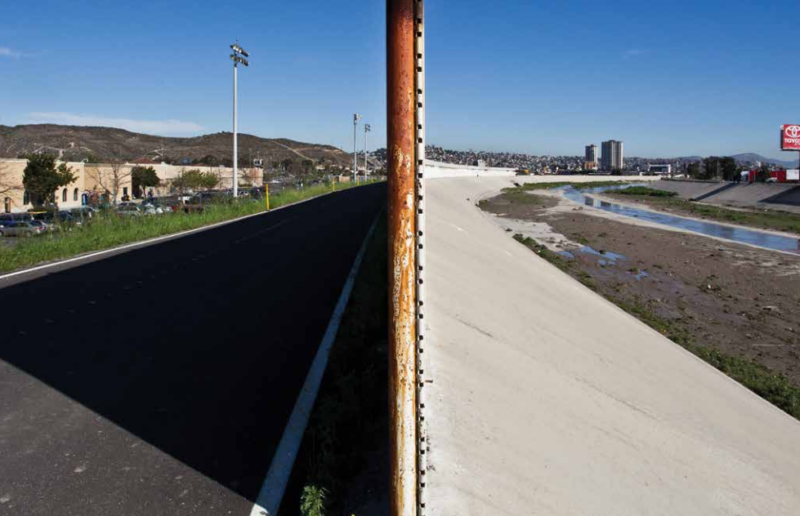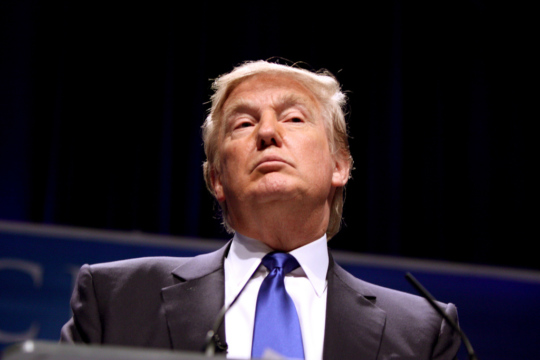
‘Campanha bizarra, cruel e divisiva’, avalia especialista americano
Presidente emérito do Inter-American Dialogue, Peter Hakim diz que maioria republicana sabe que Hillary é provável vencedora.
A Daily Publication of The Dialogue
U.S. President Donald Trump last month declared a national emergency after Congress declined to fulfill his request for $5.7 billion to help build a wall along the U.S.-Mexico border, a move that allows him to divert money appropriated by Congress for other purposes into the barrier’s construction. Days later, 16 states filed a lawsuit challenging the national emergency declaration as unconstitutional. What does Trump’s national emergency declaration entail? How is the new government of Mexican President Andrés Manuel López Obrador reacting to heightened rhetoric and the unprecedented border situation? How does López Obrador’s posture toward his northern neighbor compare to that of past Mexican presidents?
Andrés Rozental, member of the Advisor board and president of Rozental & Asociados in Mexico City: “President Trump’s use of a ‘national emergency’ to obtain funding for his useless wall on the U.S. side of the border with Mexico is rightly being challenged by Congress and in the courts as unconstitutional. After being unable to get the legislative branch to appropriate the monies he insists on getting for this pet campaign promise, the U.S. president has aggravated the already tense relationship between the two branches of government. He has raised objections even from Republicans who fear that use of the ‘national emergency’ power—for something that Trump himself has admitted is ‘unnecessary’—might one day be used by a Democrat in the White House in a similar strategy against a Republican-dominated Congress. We will have to wait for the legal outcome of this fight, but in the meantime the ‘wall’ will continue to be a figment of Trump’s imagination. Mexico’s new government has stated that this entire matter is a U.S. domestic issue and therefore has refused to make any public statement on what should, in my view, be our official position vis-à-vis the constant insults, attacks and falsehoods that President Trump and his supporters proffer against Mexico, Mexicans and the bilateral issues of immigration and drug trafficking. Turning the other cheek to Trump’s invectives and bullying has proven to be a failed strategy with other government leaders, so Mexico’s government should clearly and forcefully respond to Trump and his invectives against our country. Keeping quiet will only motivate him to see Mexico’s leadership as weak and on the defensive.”
James R. Jones, chairman of Monarch Global Strategies and former U.S. ambassador to Mexico: “In terms usually described to justify a declaration of a national emergency, the Trump order falls far short. Every statistic from Trump’s own government indicates that illegal migration is actually down dramatically. Every interview from those living at the border refutes the notion that we are being invaded by masses of marauders. Thus, many lawsuits to stop the executive order are expected. This will probably go before the Supreme Court for a decision. The result is unpredictable, as it pits two constitutional principles against each other—the power of Congress to determine spending and the power of the presidency to determine national security. President Nixon tested these constitutional conflicts when he refused to spend money on programs that Congress had appropriated. The result was the Budget and Impoundment Act, which prohibited this practice. In this case, lawsuits filed by state and local governments, landowners and other interested parties will tie up enforcement of this executive order for some time. In the meantime, President López Obrador and his government are handling the situation very well. AMLO has two overriding goals in the near term: to keep the Mexican economy on a growth path targeting 4 percent in his first year and to keep relations with the United States on a positive course. Both are needed to achieve his ultimate goal of narrowing the huge poverty gap in Mexico. There seems to be considerable mutual respect between the two presidents. Most Mexicans seem to believe that the United States can do whatever it wants on its own territory even if it’s a dumb or insulting idea. So, on this particular folly of building a wall across our border, I think our bilateral relationship will survive. The constantly growing commerce between us will continue to create wealth for both countries and increase human understanding.”
Pamela Starr, professor at the University of Southern California: “To find the funds needed to extend the existing barrier on the U.S. southern border, President Trump declared a national emergency. In the process, Trump’s efforts to drum up support for his ‘wall’ emphasized the threat that Mexico purportedly poses for the United States. Trump pointed to a supposed ‘invasion’ (a word he used seven times in the speech announcing the national emergency) of drugs, human traffickers, criminals and gangs from Mexico. Forget the fact that drugs largely come into the United States at legal ports of entry where the border is already highly fortified, or that the U.S. side of the border includes some of the safest cities in the United States. AMLO’s reaction to these taunts from Trump has been a silence which has surprised many. Unlike his predecessors, who took umbrage at such insults and tended to punch back rhetorically, AMLO has largely ignored them. For AMLO, building a wall is a U.S. domestic political matter, and one in which Mexico should not get involved. AMLO’s reaction is informed by two things. First, AMLO firmly believes that Mexico should not involve itself in the internal affairs of other countries. And second, AMLO wants to prevent any increase in bilateral tensions that might hinder approval of the USMCA or distract from what is the core priority of his administration: domestic policy efforts to improve the distribution of wealth in Mexico. For AMLO, the best foreign policy is one that does not distract from his domestic policies.”
Todd Bensman, senior national security fellow at the Center for Immigration Studies: “The new administration in Mexico has provided a surprising degree of collaboration with the United States only on one count, as demonstrated by its limited intervention of migrant caravans. But the result of these interventions has produced little of substance for the United States beyond an avoidance of a public relations embarrassment for both countries. One caravan of some 7,000 brushed past Mexican police at the Guatemala border last October. A second of approximately 2,000 successfully did so in February, also on its way to the U.S. border. In the first instance, Mexico either acceded to the Trump administration’s threats or acted in its own interests to accept a ‘wait-in-Mexico’ policy whereby the migrants would be forced to await asylum decisions inside Mexico, rather than for the Americans to have to release the migrants into the United States, where many often abscond permanently after applying for asylum for which the vast majority know they are ineligible. These collaborations were done to avoid the negative public relations repercussions of additional mad dashes by thousands of people over the U.S. border where the migrants would be met by more tear gas from the American side. The perception would have been that Mexico had allowed such terrible optics to happen. But, in both caravan instances, nearly all participants can be presumed to have eventually crossed into U.S. territory elsewhere, just more quietly. Substance is lacking. The Mexican government’s provision of ‘humanitarian’ work visas provided visas to nearly 5,000 caravanners in California and Texas. Then, they provided buses to ship the migrants to various Mexican cities, from which all were free to then cross the U.S. border in smaller, less noticeable groups that could not be identified as ‘the caravanners.’ Substantive collaboration would involve Mexican repatriation operations of such migrants back to their home countries, deterring others from following and removing incentives for them to travel. Or better yet, controlling the Mexican border with Guatemala, using measures that are more than half-hearted.”
The Latin America Advisor features Q&A with leaders in politics, economics, and finance every business day. The publication is available to members of the Dialogue's Corporate Program and others by subscription.
Presidente emérito do Inter-American Dialogue, Peter Hakim diz que maioria republicana sabe que Hillary é provável vencedora.
Michael Shifter fue entrevistado por Gerardo Torres de El Salvador sobre los temas más destacados en la agenda regional. Entre otros asuntos, Shifter habló sobre el futuro de la paz en Colombia, la crisis política y económica en Venezuela, y el impacto de las elecciones de Estados Unidos en la región.
¿Debe México hacer campaña en Estados Unidos para que conciudadanos se registren y voten, y otra para resaltar los beneficios del TLCAN? ¿Es momento de pensar en cómo recibiremos a millones de deportados, hay que dar la pelea en tribunales internacionales de derechos humanos? ¿Llegó la hora de preparar represalias comerciales contra Estados Unidos y considerar nuevos socios en AL, Europa y Asia? Son muchas preguntas, y variadas y hasta opuestas las respuestas que dan diplomáticos, politólogos y analistas. Sólo una sola cosa es cierta: Trump es impredecible.
 File Photo: U.S. Government.
File Photo: U.S. Government.

